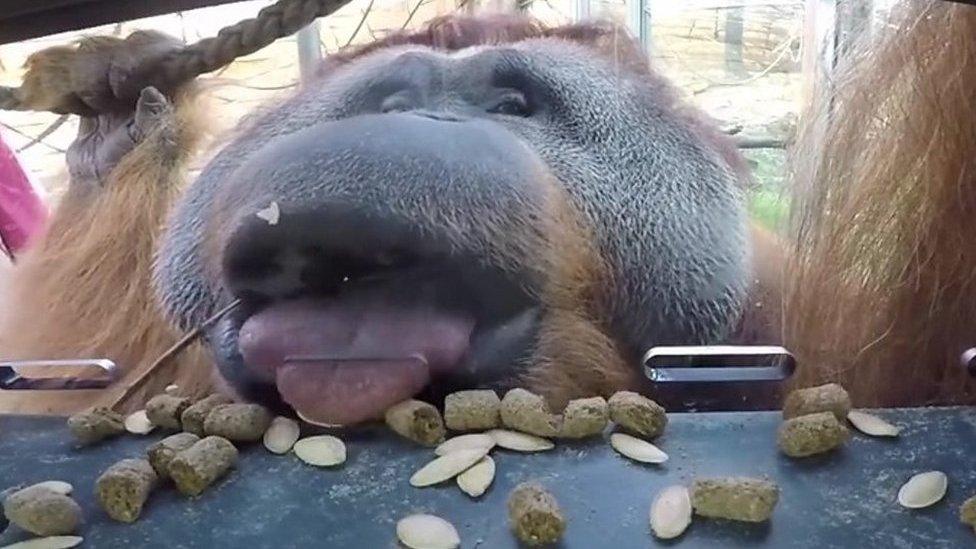Scientists impressed as Mary the elephant uses a hose with her nose
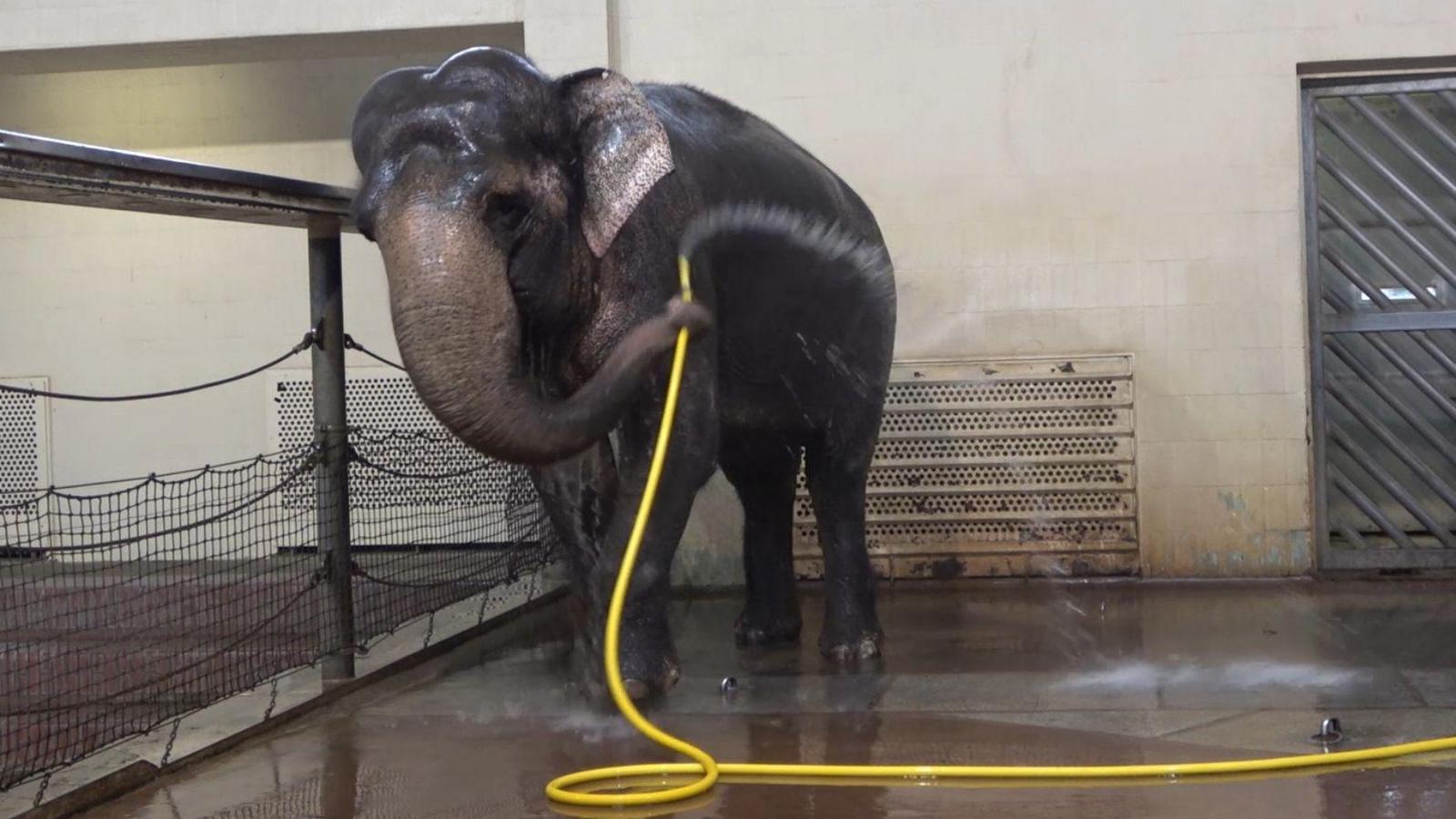
- Published
An Asian elephant has wowed scientists after being filmed using a hose to give herself a shower.
Scientists have described it as "sophisticated behaviour" that shows "remarkable skill".
They said it shows goal-directed behaviour using tools which was once thought to be unique to humans.
Also using goal-directed behaviour was Anchali, another elephant at Berlin Zoo, who tried to ruin Mary's wash by creating kinks in the hose to stop the water.
Other tool-using animals
The secret talents of crows. Video, 00:01:07
- Published24 January 2018
Sea otters use tools to open hard-shelled prey
- Published17 May 2024
The brainy birds that pick the right tool for the job
- Published15 February 2023
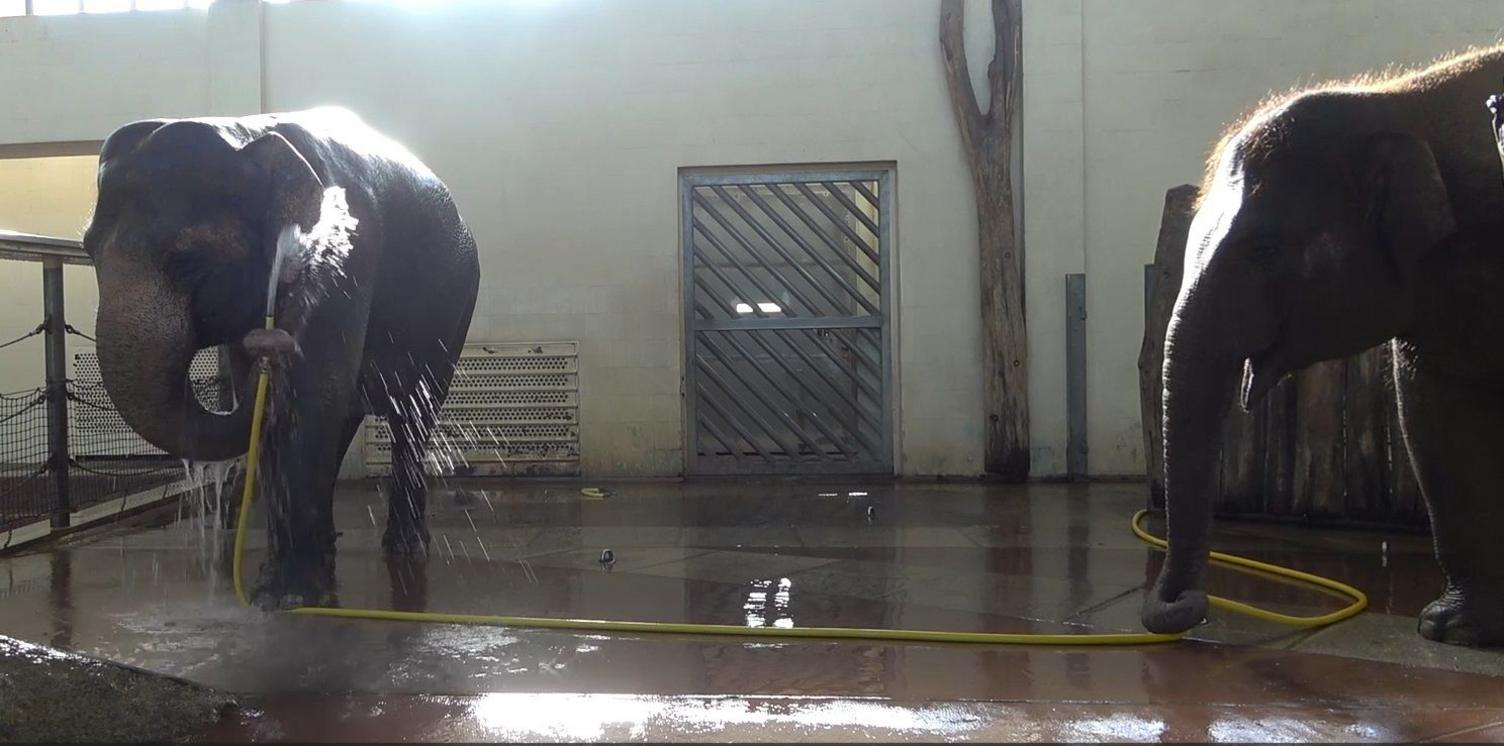
Pesky Anchali, another Asian elephant at Berlin Zoo tried to stop Mary's wash
Mary was filmed in Berlin Zoo, holding the hose with her trunk and using it to wash her body, while Anchali tried to cut off the water supply with her trunk.
Michael Brecht, a professor at Humboldt University, said: "The surprise was certainly Anchali's kink-and-clamp behaviour."
Her most impressive trick being a "trunkstand" where she placed her trunk on the hose and lowered her body onto it.
Prof Brecht added: "Do elephants play tricks on each other in the wild?
"When I saw Anchali's kink and clamp for the first time, I broke out in laughter.
"So I wonder, does Anchali also think this is funny, or is she just being mean?"
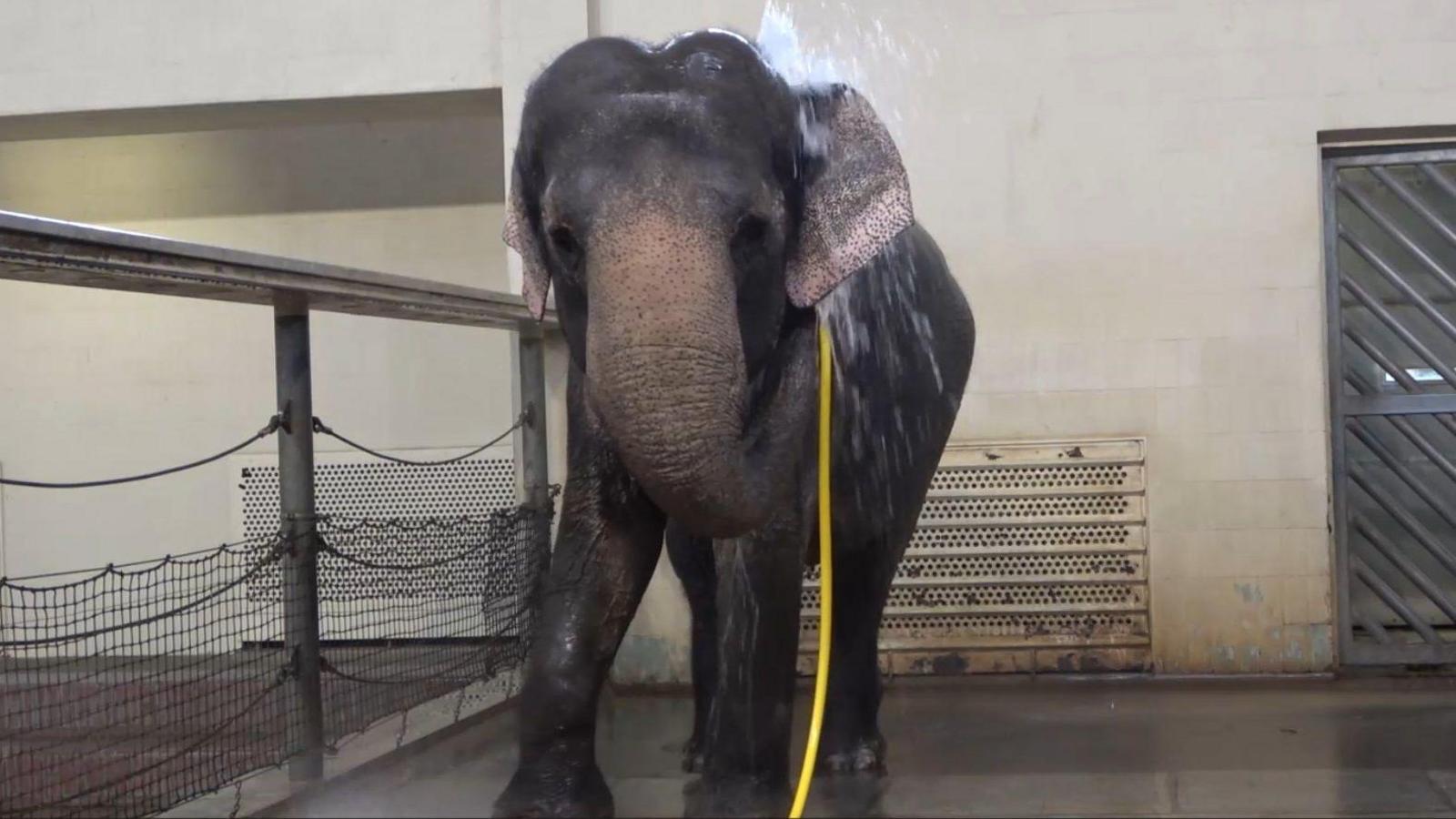
Mary was seen thoroughly washing her body with the hose, swinging it like a lasso to reach her back
Goal-directed behaviour has recenty been observed in other species like chimpanzees, crows and dolphins.
Lena Kaufmann, of Humbolt University, who filmed Mary, said: "Elephants spray themselves with water, mud or dust all the time, and it's been shown before that over 80% of observed tool-use behaviours in elephants are actually body care-related."
But a hose is an "exceptionally complex tool" because it is flexible, can extend in length and has water flowing through it which is what makes this behaviour so special.
Ms Kaufman said: "Mary's very skilful in behaviour with this water hose made us think that maybe elephants have somewhat (an) intuitive understanding of hoses, potentially due to the similarities with their own trunks."
More like this
- Published23 February 2024

- Published21 August 2024
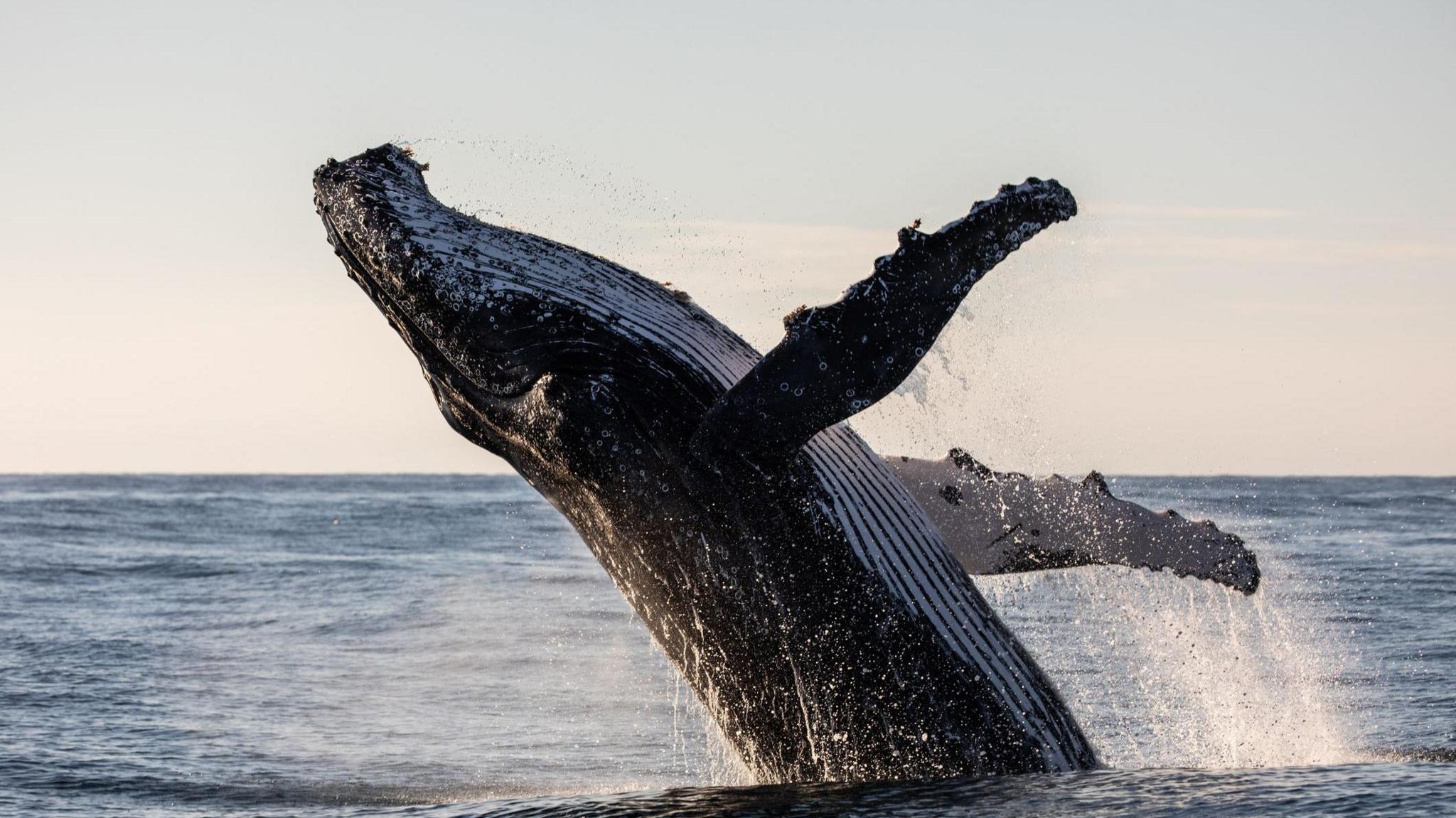
- Published21 June 2019
